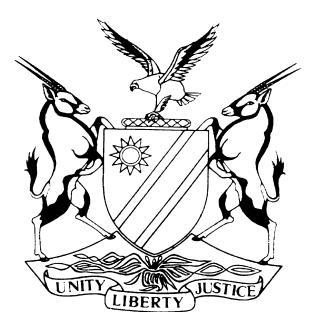NOT REPORTABLE 

HIGH COURT OF NAMIBIA MAIN DIVISION, WINDHOEK
REVIEW JUDGMENT
Case no: CR 01/2019
In the matter between:
THE STATE
v
WILLEM SCHEEPERS ACCUSED 1
ISSASKER MBUNDU ACCUSED 2
(HIGH COURT MAIN DIVISION REVIEW REF NO. 1828/2018)
Neutral citation: S v Scheepers (CR 01/2019) [2019] NAHCMD 1 (21 January 2019)
Coram: USIKU, J and UNENGU, AJ
Delivered: 21 January 2019
Flynote: Criminal Procedure – Plea – Guilty – Questioning in terms of s 112(1)(b) of the Criminal Procedure Act 51 of 1977 – Questioning should cover all elements of offence – Punishment is one such element as it forms part of the requirements of the principle of legality – Conviction does not bring an end to a case but punishment which complies with the principle of nulla poena sine lege.
Summary: Criminal Procedure – Plea – Guilty – The questioning in terms of s 112(1)(b) must cover all the elements of the offence – including punishment. Punishment forms part of the requirements of the principle of legality. Conviction does not bring an end to a case but punishment in accordance with the principle of nulla poena sine lege. In addition, the magistrate questioning the accused must not draw inferences due to lack of explanation by the accused and inadequate questions from the court to cover all aspects.
ORDER

The conviction and sentence of both accused are confirmed.

REVIEW JUDGMENT

UNENGU, AJ (USIKU, J concurring):
[1] This is a review matter submitted on automatic review in terms of s 302 of the Criminal Procedure Act1, (the CPA).
[2] The two accused who conducted their own defence were charged with theft of cupboard doors and frames of the Ministry of Works and Transport.
[3] They pleaded guilty to the charge, questioned in terms of s 112(1)(b) of the CPA, convicted and sentenced as follows: Accused 1: N$2000.00 or 8 months imprisonment and accused 2: 8 months imprisonment because accused 2 has a record of a previous conviction of theft.
[4] When going through the record of proceedings, in particular the questioning of the accused by the magistrate in terms of s 112(1)(b), I realised that both accused were not asked a question about whether they knew that they could be punished for their unlawful conduct (the commission of the crime) by a court of law.
[5] That being the case, I queried the learned magistrate as to whether the accused were aware that they were committing a crime for which they could be punished by a court of law if arrested?
[6] In her reply to the query, the learned magistrate responded as follows:
‘1. I did satisfy myself that the accused admitted all the elements of the offence as I posed the following question to the accused.
Q: Did you know that your conduct was wrong and unlawful?
A: Yes.
2. The accused thus admitted that he was committing and was wrong an unlawful act, i.e. he knew that he was committing a crime for which he could be punished by a court if arrested.
3. However, your further guidance herein would be highly appreciated.’
[7] The learned magistrate in her reply evaded the query and tormented herself with irrelevant things not asked to comment on. How did she satisfy herself that the accused knew that they were committing a crime for which they could be punished by a court of law if she failed to establish that when questioning the accused?
[8] Punishment is one of the facts embodied in the definition of the principle of legality.2 A conviction does not bring a criminal case to an end because after a conviction the court still has to impose a punishment in accordance with the principle of nulla poena sine lege.
[9] In addition questioning in terms of s 112(1)(b) should cover all elements of the offence – not to draw inferences due to lack of explanation by the accused and inadequate questions from the court to cover all aspects.3 What counts is what the accused actually said and not what the court thought of the answers by the accused.4
[10] Therefore, and in view of what is said above, I ask magistrates not to forget to ask an accused person during the questioning in terms of s 112(1)(b) a question to cover the element of punishment. In this matter, even though the learned magistrate did not ask the two accused whether they knew that they would be punished for the crime of theft they have committed, I am still of the view that the proceedings in the case appear to be in accordance with justice hence will be confirmed. Accordingly the following order is made:
The conviction and sentence of both accused are confirmed.
----------------------------------
E P UNENGU
Acting Judge
----------------------------------
D N USIKU
Judge
2 CR Snyman; Fifth Ed Lexis Nexis at p 36.
3 S v Nashapi 2009(2) NR 803.
4 S v Goagoseb 1995 NR 165 HC.